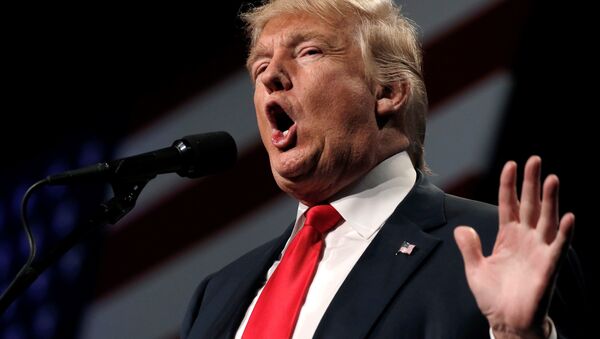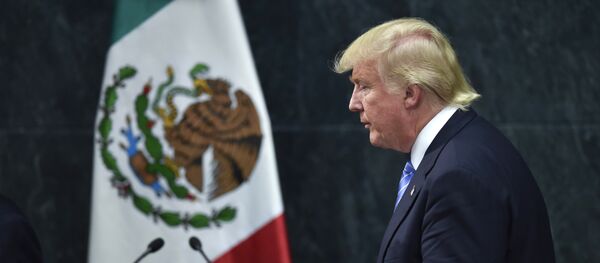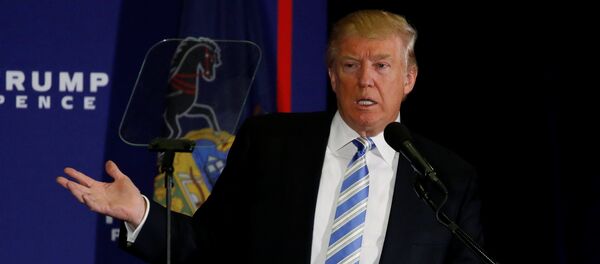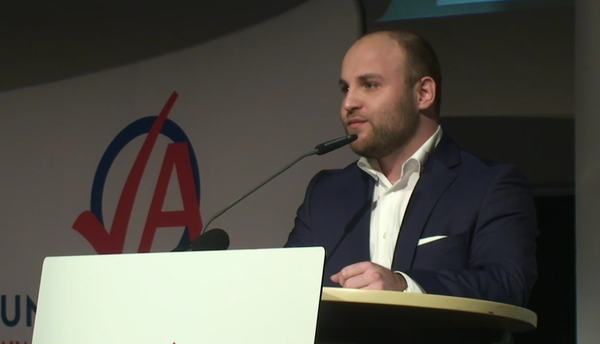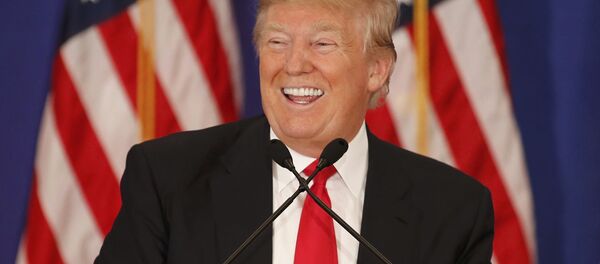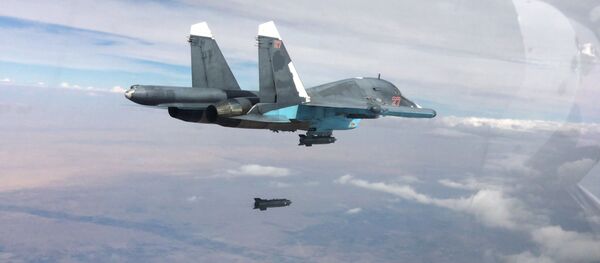Trump’s foreign policy is often being described by his opponents as isolationist. With his famous election slogan "America first," he strongly advocates for less US involvement in the world affairs. In July, Trump told The New York Times that the United States had to "fix our own mess" before trying to alter the behavior of other nations, referring to countries that crack down on civil liberties.
"Donald Trump often spoke about the need to stop the senseless American intervention, which runs quite intensively here for the past ten years. So, if he becomes the head of the White House, it is likely that Germany will no longer get involved in dangerous and financially expensive foreign operations," Markus Frohnmaier, who also serves as spokesman for AfD leader Frauke Petri, stated.
He also called Trump "a more preferable candidate" from the German perspective.
And as a major US ally in Europe, Germany also had been at risk of being involved into the Iraqi War back in 2003 if not the resistance to it of then-chancellor Social-Democrat Gerhard Schroder. According to 2003 media reports, the current chancellor and back then the leader of CDU/CSU opposition, Angela Merkel, in private discussions with representatives of the US delegation admitted that a CDU-led government would have signed the declaration of the eight European states giving full support to the United States in Iraq.
According to Frohnmaier, in case Hilary Clinton, a Democratic candidate, is declared a winner following November 8 US presidential elections, the US foreign policy in the Middle East is likely to become more aggressive and assertive.
"She [Clinton] repeatedly stressed that she supports the so-called Syrian rebels, who are in fact hidden Islamists, presenting themselves as liberal democrats. She also supports a non-fly zone over Syria, which could undermine the efforts of the Russian Air Force in the fight against the Daesh," the AfD politician said.
Conserning relations between US and NATO, the probable implementation of the US Republican candidate Donald Trump’s idea to make the US allies in NATO take more financial burdens for the Alliance's activities may prompt Europe to seek new ways to secure the continent's defense, Markus Frohnmaier also told Sputnik in a interview.
"At present, the strongest argument in favor of NATO for the Europeans is the fact that Americans assume most of the costs. If this stops, the European leaders are likely to seek for an alternative way to protect their continent," Markus Frohnmaier, who also serves as spokesman for AfD leader Frauke Petri, said.
During his election campaign, Trump has repeatedly stated that US allies need to pay more for their defense, singling out the country's partners within NATO and even suggested the US should rethink its involvement in the military alliance because it was "obsolete" and other states did not pay a fair share. "We pay approximately 73 percent of the cost of NATO. It’s a lot of money to protect other people," Trump stated during the first debate with his Democratic rival Hilary Clinton.
NATO's official guidelines say member states should spend at least 2 percent of their GDP on defense, while only five out of 28 members of the alliance — the United States, Greece, Poland, Estonia and the United Kingdom — meet the target.
At the July NATO summit in Warsaw, NATO leaders admitted that the bloc had an "over-reliance" on the US for the provision of essential capabilities, including intelligence, surveillance and reconnaissance, air-to-air refueling, ballistic missile defense and airborne electronic warfare.
The European Union is now revising its defense strategy, discussing prospects of establishing the bloc's common army. The plan, which goes back to 1950, was revived in March 2015 by the European Commission president Jean-Claude Juncker, who said the bloc needed its own unified army to respond to threats posed to EU member states. Major proponents of such a EU-wide army are Germany, France and Italy.

